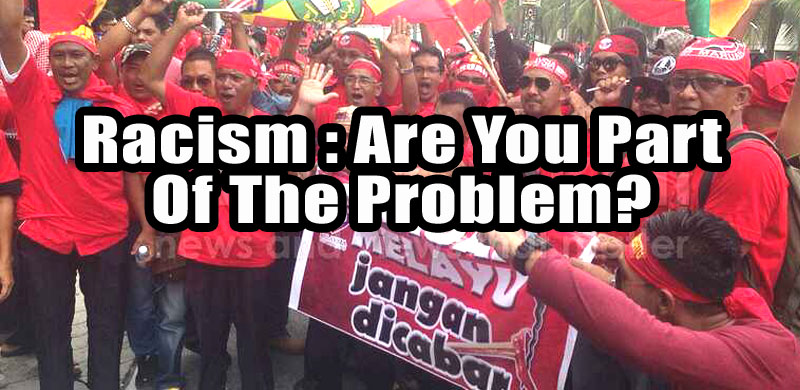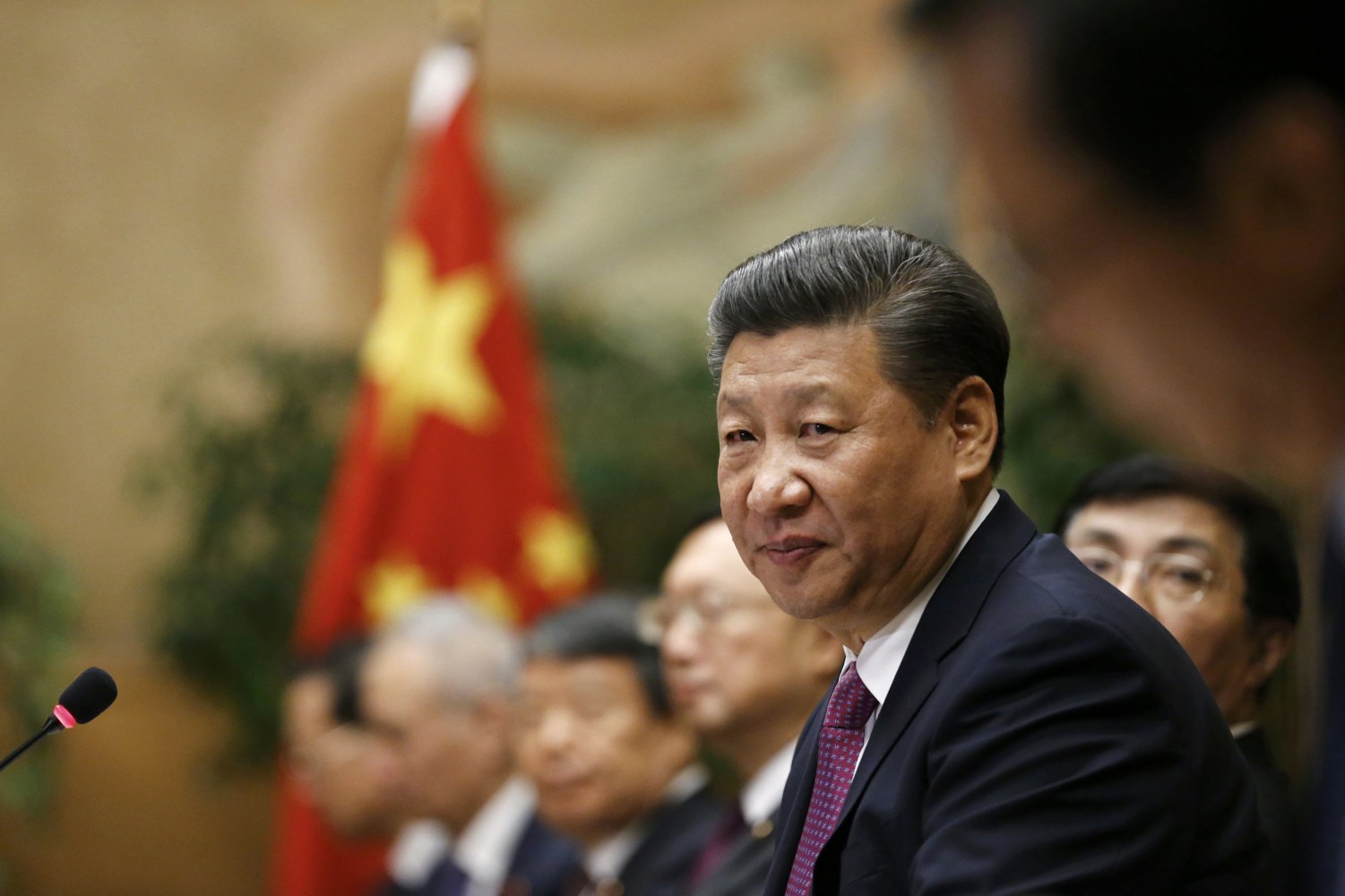April 16, 2017
Prime Minister Najib Razak : Time for Pro-Government BN social activists to attack
by FMT Reporters@www.freemalaysiatoday.com
Good Luck to these Ampu Social : Fighting a Lost Cause
Prime Minister Najib Razak said it is time for pro-government Barisan Nasional (BN) social media activists to go on the offensive in cyberspace to defend the government and help them retain Putrajaya.
The Prime Minister said he was confident of the role played by pro-BN government activists as they wanted to be seen as nationalists in the new battlefield.
“We have long been in defensive mode. Enough. It is now time to attack!” Najib said in a post on his blog (below) titled “2017 Social Media Activists Assembly”.
Najib said today’s battlefields had changed and were no longer physical or face-to-face but in cyberspace. He gave the example of the previous general election in which the BN government was exposed to attacks without any cyber army to retaliate, but today many activists are loyal cyber commanders ready to fight for BN government policies.
The Prime Minister, however, reminded all social activists to hold on to three basic principles in the battle.Firstly, he said they needed to avoid internal feuds among themselves and to be committed in the struggle to uphold the BN government.
Secondly, to expand the cyber network so that messages were delivered to the people more effectively. The third principle was that they should learn from what happened in the previous general election.
“We must ward off in our responses and not to be trapped as happened on polling day in the 13th general election in which the opposition disseminated false news that we were bringing in voters from Bangladesh to vote and that we created blackouts in certain places to manipulate votes. All these stories were preposterous but many were taken in by such news which did affect voters and the election,” he said.
Najib said he expected the opposition to use the same dirty tactics in the next general election as the opposition believed, “If you cannot convince them (voters), confuse them”.
The dirty tactics of the Opposition, he said clearly showed that if they could not sway voters with their empty or sweet promises, their modus operandi was to confuse the people and create disbelief and anger against the BN government.
The Prime Minister described pro-BN government activists as loyal commanders in cyberspace who would readily defend BN policies and repel all lies played up by the opposition. “Insya-Allah with such a fighting spirit and unity, we can obtain a bigger win in the 14th general election and Putrajaya will remain in the hands of Barisan Nasional,” he said.
Himpunan Aktivis Media Sosial 2017
Malam semalam amat bermakna bagi saya kerana dapat berjumpa, berhimpun dan bergaul bersama aktivis media sosial pro Kerajaan Barisan Nasional.
Mereka ini bukanlah calang-calang orangnya, mereka ini panglima di alam maya yang begitu setia mempertahankan dasar Kerajaan Barisan Nasional, mempertahankan maruah parti dan membidas segala pembohongan yang giat dipermainkan oleh pembangkang sejak sekian lama.

Saya berkeyakinan tinggi para aktivis media sosial kita ini juga, akan terus memainkan peranan mempertahankan Kerajaan dan membantu mengekalkan Barisan Nasional di Putrajaya.
Ini semua kerana mereka, seperti saya dan jutaan rakyat Malaysia lagi, percaya bahawa di bumi Malaysia ini tidak ada pilihan yang lebih baik daripada Barisan Nasional.
Saya mahu para aktivis media sosial kita juga ada kepercayaan diri dan melihat bahawa anda semua bukan sekadar aktivis tetapi adalah pejuang nasionalis.
Medan perang (Battlefield) kita hari ini sudah berubah, tidak lagi dalam bentuk fizikal atau face to face tetapi alam maya atau ruang siber adalah medan perang yang baru. Jika kita imbas kembali apa yang berlaku dalam dua Pilihanraya Umum dahulu, Kerajaan Barisan Nasional terdedah kepada serangan tanpa ada bala tentera yang boleh menangkis serangan tersebut.
Tetapi hari ini, saya lihat bahawa sudah ada penambahbaikan dan kita telah berjaya menghimpunkan ramai aktivis media sosial, panglima-panglima alam maya kita yang setia bersama Barisan Nasional, yang tetap percaya kepada perjuangan dan dasar kita.

Namun, dalam kita berjuang bersama-sama menghala ke medan perang, sudah tentu ada prinsip asas yang perlu kita gariskan dan praktikkan.
Pertama, saya menyeru kepada semua untuk mengelakkan pertelagahan sesama sendiri. Kita mesti komited kepada perjuangan secara bersama, berjuang menegakkan Kerajaan Barisan Nasional.
Kedua, kita mesti memperluaskan lagi rangkaian alam maya kita. Kita perlu tentukan kandungan dan mesej kita kepada rakyat dan berkongsi maklumat sesama kita agar ia dapat disebarkan dengan lebih meluas dan lebih berkesan lagi.
Kita mesti berusaha berkomunikasi dengan influencers dalam pelbagai bidang dan membina rangkaian kita agar mereka juga terlibat bersama dengan kita.

Ketiga dan yang terakhir sekali, amanat saya kepada semua adalah kita perlu belajar daripada apa yang berlaku dalam Pilihanraya Umum dahulu.
Kita mesti tangkas dalam respons kita dan tidak terperangkap, sepertimana yang berlaku pada hari mengundi dalam Pilihanraya Umum Ke-13 di mana pembangkang telah menyebarkan berita palsu mengenai kononnya kita membawa masuk pengundi Bangladesh untuk mengundi, bahawa kononnya kita mewujudkan keadaan blackout di tempat tertentu untuk memanipulasi undi.
Cerita ini semua langsung tidak masuk akal, tetapi ramai terpedaya dengan berita ini yang sedikit sebanyak membawa kesan kepada pengundi dan pilihan raya itu sendiri.
Saya jangkakan bahawa dalam Pilihanraya Umum yang akan datang, pembangkang akan kembali menggunakan taktik kotor serupa, melontarkan sesuatu yang tak terfikir oleh kita nanti untuk membuatkan orang marah dan benci pada kita.
Ingatlah bahawa pembangkang hanya berpegang kepada satu prinsip sahaja iaitu “If you cannot convince them, confuse them”.
Taktik kotor mereka amat jelas, jika mereka tidak dapat meyakinkan pengundi agar mempercayai janji-janji kosong atau kata-kata manis mereka, modus operandi mereka adalah untuk mengelirukan rakyat agar menimbulkan ketidakpercayaan serta kemarahan terhadap Kerajaan Barisan Nasional.
Kita sudah lama berada dalam ‘defensive mode’. Cukuplah. It is now time to attack ! Insya-Allah, dengan semangat juang dan kesepaduan sesama kita, kita mampu peroleh kejayaan besar dalam PRU 14, dan Putrajaya akan kekal milik Barisan Nasional !


















